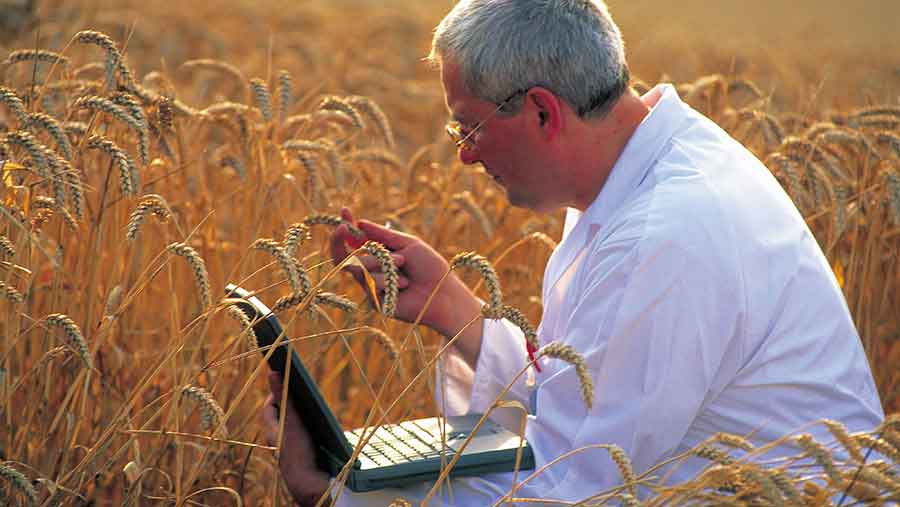Wheat breeding and nutrient research projects get £1m cash injection
 © RESO/REX Shutterstock
© RESO/REX Shutterstock Cash totalling nearly £1m has been awarded to two UK research projects to help growers improve wheat yields and better manage crop nutrients.
Niab and University College London (UCL) have received £838,000 to develop innovative methods to help improve wheat performance based on a new hybrid plant breeding research programme.
Generated by Niab, the joint research effort seeks to develop the UK’s only Multi-parent Advanced Generation Inter-Cross wheat populations, dubbed “Magic”, by crossing multiple parent lines over multiple generations.
See also: How to achieve balanced soil and crop nutrition
Backed by cash from Biotechnology and Biological Sciences Research Council (BBSRC), the new project aims to develop an existing 16-parent wheat population into a community resource for UK wheat researchers, along

Dr James Cockram, Niab project co-ordinator and group leader ©Niab
with supporting software and training opportunities.
It will culminate in two large “community access” field experiments at Niab, where wheat researchers will be able to measure traits in the population of interest to them, as well as exchange ideas and receive training at associated workshops and conferences.
James Cockram, project co-ordinator and group leader at Niab, said: “To meet rising demand, wheat yield increases around the world must be improved dramatically.
“Magic is a new approach in wheat research, with the potential to allow rapid advances in our understanding of how we can improve yield.”
Meanwhile, Adas has been handed £98,000 to review nutrient management information which will feed into an updated version of the Fertiliser Manual (RB209).
Earlier this year AHDB announced that it would be taking the lead on the revision of the current Fertiliser Manual which was first published by Defra in 2010.
Find out more about the Niab and UCL Magic wheat breeding research programme and the AHDB-led crop nutrient management guide.

